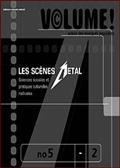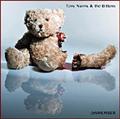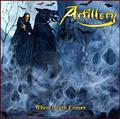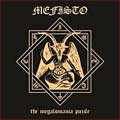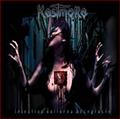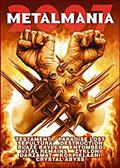QUEEN + PAUL RODGERS (uk) - The Cosmos Rocks (2008)
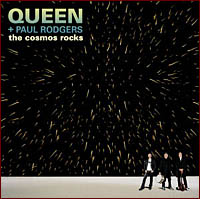
Label : Queen Productions / EMI
Sortie du Scud : 15 Septembre 2008
Pays : Angleterre
Genre : du Rock, pas du Queen !
Type : Album
Playtime : 15 Titres - 58 Mins
Je revois la pochette de Made In Heaven, et Freddie, de dos, levant le point vers le ciel … et de l’autre côté du rivage, sur le verso, Brian, Roger et John, de dos également, semblant scruter l’horizon, comme pour mieux chercher leur ami à jamais perdu. Cette fois, c’était sûr, Freddie la Reine nous avait quittés, et jamais, non jamais on ne le reverrait.
Orphelins de leur compère, les trois quarts restant ont eu bien du mal à s’en remettre. Les années sont passées … Et puis, telle une veuve décidant subitement de refaire sa vie, QUEEN a semblé trouver un nouveau compagnon de route. Pas forcément celui qu’on attendait d’ailleurs. Exit les George Michaels et autres Robin Williams, c’est le grand Paul Rodgers qui a redonné l’envie de vivre à Brian May et Roger Taylor (John Deacon ayant préféré rester à la maison).
Le bonhomme est loin d’être un inconnu, sa voix chaude et rauque ayant fait les beaux jours de FREE (je vous conseille Fire And Water, paru en 1970, et son fameux « All Right Now »), BAD COMPANY et même THE FIRM avec un certain Jimmy Page.
Afin de respecter Freddie, car QUEEN sans Mercury ne sera jamais QUEEN, un premier double album live (Return Of The Champions) est sorti sous le nom « QUEEN + Paul Rodgers ». Visiblement nos trois gars y ont pris bien du plaisir et cette joie non dissimulée semblait toutefois n’être l’affaire que d’une tournée. On était loin de se douter que ce nouveau line-up accoucherait de The Cosmos Rocks.
Autant vous le dire tout de suite, ceux qui attendent une version ré-actualisée de « Bohemian Rhapsody » ou « Innuendo » avec Rodgers au micro risquent d’être déçus. A la limite, The Cosmos Rocks lorgne en partie sur les hits les plus rentre-dedans de QUEEN, comme « I Want It All » ou « Hammer To Fall ». Avec un chanteur à la tessiture si particulière, il ne pouvait pas en être autrement. Il est impossible, et il serait insultant pour deux chanteurs si uniques à la carrière exemplaire, de comparer Freddie Mercury et Paul Rodgers. Donc ne pensez pas à QUEEN si vous écoutez cet album.
Pensez à STATUS QUO (le Rock’n’Roll « Cosmos Rockin’ »), pensez à du très bon U2 (« Time To Shine »), pensez à l’AEROSMITH qui entraîne les déhanchements les plus sulfureux (le single « C-lebrity » et son parallèle évident avec « Walk This Way »), pensez à un brûlant strip-tease de la sculpturale Jenna Jameson (le groovy « Still Burnin’ »), ou pensez encore à un Blues qui prend aux tripes (« Voodoo »).
Pensez aussi que sans un mec de la trempe de Paul Rodgers, une bonne partie de The Cosmos Rocks se serait révélée banale et sans saveur. Comme « Small », une sorte de mauvais U2 (on y revient …). Ou pire, sur ce gospel maladroit, directement sorti d’une pub pour Oncle Ben’s … et ce n’est pas toujours un succès … Affirmer que Rodgers tient l’album à bout de bras serait toutefois porter atteinte à Brian May. L’homme qui joue sur sa gratte avec une pièce de monnaie continue d’illuminer chaque titre de son style identifiable entre mille. De là à affirmer que May est le détenteur de la « griffe QUEEN » … Ce sera une bien maigre consolation pour tous les fans du QUEEN d’antan. Mais The Cosmos Rocks demeure un album de Rock largement respectable.
Ajouté : Jeudi 09 Octobre 2008
Chroniqueur : NicoTheSpur
Score :    
Lien en relation: Queen + Paul Rodgers Website
Hits: 11229
|



